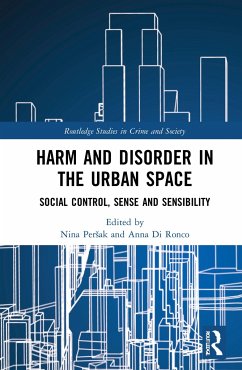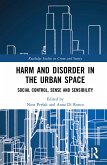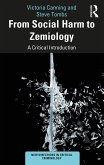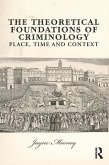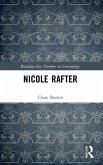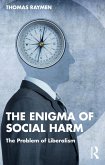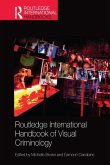Bringing together an international group of authors, this book addresses the important issues lying at the intersection between urban space, on the one hand, and incivilities and urban harm, on the other. Progressive urbanisation not only influences people's living conditions, their well-being and health but may also generate social conflict and consequently fuel disorder and crime.
Rooted in interdisciplinary scholarship, this book considers a range of urban issues, focussing specifically on their sensory, emotive, power and structural dimensions. The visual, audio and olfactory components that offend or harm are inspected, including how urban social control agencies respond to violations of imposed sensory regimes. Emotive dimensions examined include the consideration of people emotions and sensibilities in the perception of incivilities, in the shaping of social control to deviant phenomena, and their role in activating or suppressing people's resistance towards otherwise harmful everyday practices. Power and structural dimensions examine the agents who decide and define what anti-social and harmful is and the wider socio-economic and cultural setting in which urbanites and social control agents operate. Connecting with sensory and affective turns in other disciplines, the book offers an original, distinctive and nuanced approach to understanding the harms, disorder and social control in the city.
An accessible and compelling read, this book will appeal to those engaged with criminology, sociology, human geography, psychology, urban studies, socio-legal studies and all those interested in the relationship between urban space and urban harm.
Rooted in interdisciplinary scholarship, this book considers a range of urban issues, focussing specifically on their sensory, emotive, power and structural dimensions. The visual, audio and olfactory components that offend or harm are inspected, including how urban social control agencies respond to violations of imposed sensory regimes. Emotive dimensions examined include the consideration of people emotions and sensibilities in the perception of incivilities, in the shaping of social control to deviant phenomena, and their role in activating or suppressing people's resistance towards otherwise harmful everyday practices. Power and structural dimensions examine the agents who decide and define what anti-social and harmful is and the wider socio-economic and cultural setting in which urbanites and social control agents operate. Connecting with sensory and affective turns in other disciplines, the book offers an original, distinctive and nuanced approach to understanding the harms, disorder and social control in the city.
An accessible and compelling read, this book will appeal to those engaged with criminology, sociology, human geography, psychology, urban studies, socio-legal studies and all those interested in the relationship between urban space and urban harm.
A bold, provocative and much needed collection that pushes past the boundaries of conventional understandings of urban incivilities. It is a landmark achievement, making a compelling case for a criminology of the senses and is fully attuned to how the landscapes of disorder, crime, justice and social control are experienced in the city.
Eamonn Carrabine, Professor of Criminology, Sociology Department, University of Essex, UK
This fascinating and timely book-with its focus on power and structural inequalities as well as the emotional and sensory dimensions of harm and disorder-makes an original and invaluable contribution to the burgeoning 'field' of urban criminology.
Gareth Millington, Senior Lecturer, University of York, UK
This is a very impressive collection and contribution to critical criminology! It undertakes analysis at the intersection of the senses, affective registers, power/control in examining crime, social harm and disorder in urban spaces; contributes to advances in urban and sensory criminology; and crucially to criminology as a European and global project. A must read and core text for criminological theory modules and indeed, for all researchers interested in urban studies.
Maggie O'Neill, Professor of Sociology & Criminology at University College Cork, Ireland
Thinking about cities through the senses and emotion can be a revealing experience to criminologists and urban scholars interested in issues such as harm, disorder and incivility, which this edited book shows very clearly. It is a very welcome and even necessary contribution to urban criminology.
Lucas Melgaço, Professor of Urban Criminology, Vrije Universiteit Brussel
Eamonn Carrabine, Professor of Criminology, Sociology Department, University of Essex, UK
This fascinating and timely book-with its focus on power and structural inequalities as well as the emotional and sensory dimensions of harm and disorder-makes an original and invaluable contribution to the burgeoning 'field' of urban criminology.
Gareth Millington, Senior Lecturer, University of York, UK
This is a very impressive collection and contribution to critical criminology! It undertakes analysis at the intersection of the senses, affective registers, power/control in examining crime, social harm and disorder in urban spaces; contributes to advances in urban and sensory criminology; and crucially to criminology as a European and global project. A must read and core text for criminological theory modules and indeed, for all researchers interested in urban studies.
Maggie O'Neill, Professor of Sociology & Criminology at University College Cork, Ireland
Thinking about cities through the senses and emotion can be a revealing experience to criminologists and urban scholars interested in issues such as harm, disorder and incivility, which this edited book shows very clearly. It is a very welcome and even necessary contribution to urban criminology.
Lucas Melgaço, Professor of Urban Criminology, Vrije Universiteit Brussel

